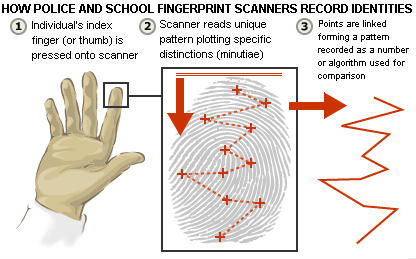The recent British Identy Chernobyl demands our close examination.
Consider:
- the size of the breach – loss of one person's identity information is cause for concern, but HMRC lost the information on 25 million people (7.5 million families)
- the actual information “lost” – unencrypted records containing not only personal but also banking and national insurance details (a three-for-one…)
- the narrative – every British family with a child under sixteen years of age made vulnerable to fraud and identity theft
According to Bloomberg News,
Political analysts said the data loss, which prompted the resignation of the head of the tax authority, could badly damage the government.
“I think it’s just a colossal error that I think could really rebound on the government’s popularity”, said Lancaster University politics Professor David Denver.
“What people think about governments these days is not so about much ideology, but about competence, and here we have truly massive incompetence.”
Even British Chancellor Alistair Darling said,
“Of course it shakes confidence, because you have a situation where millions of people give you information and expect it to be protected.
Systemic Failure
Meanwhile, in parliament, Prime Minister Gordon Brown explained that security measures had been breached when the information was downloaded and sent by courier to the National Audit Office, although there had been no “systemic failure”.
This is really the crux of the matter. Because, from a technology point of view, the failure was systemic.
From a technology point of view, the failure was systemic.
We are living in an age where systems dealing with our identity must be designed from the bottom up not to leak information in spite of being breached. Perhaps I should say, “redesigned from the bottom up”, because today's systems rarely meet the bar. It's not that data protection wasn't considered when devising them. It is simply that the profound risks were not yet evident, and guaranteeing protection was not seen to be as fundamental as meeting other design goals – like making sure the transactions balanced or abusers were caught.
Isn't it incredible that “a junior official” could simply “download” detailed personal and financial information on 25 million people? Why would a system be designed this way?
To me this is the equivalent of assembling a vast pile of dynamite in the middle of a city on the assumption that excellent procedures would therefore be put in place, so no one would ever set it off.
There is no need to store all of society's dynamite in one place, and no need to run the risk of the collosal explosion that an error in procedure might produce.
Similarly, the information that is the subject of HMRC's identity catastrophe should have been partitioned – broken up both in terms of the number of records and the information components.
In addition, it should have been encrypted – even rights protected from beginning to end. And no official (A.K.A insider) should ever have been able to get at enough of it that a significant breach could occur.
Gordon Brown, like other political leaders, deserves technical advisors savvy enough to explain the advantages of adopting new approaches to these problems. Information technology is important enough to the lives of citizens that political leaders really ought to understand the implications of different technology strategies. Governments need CTOs that are responsible for national technical systems in much the same ways that chancellors and the like are responsible for finances.
Rather than being advised to apologize for systems that are fundamentally flawed, leaders should be advised to inform the population that the government has inherited antiquated systems that are not up to the privacy requirements of the digital age, and put in place solutions based on breach-resistance and privacy-enhancing technologies.
The British information commissioner, Richard Thomas, is conducting a broad inquiry on government data privacy. He is quoted by the Guardian as saying he was demanding more powers to enter government offices without warning for spot-checks.
He said he wanted new criminal penalties for reckless disregard of procedures. He also disclosed that only last week he had sought assurances from the Home Office on limiting information to be stored on ID cards.
“This could not be more serious and has to be a serious wake-up call to the whole of government. We have been warning about these dangers for more than a year.
I have never understood why any politician in his (or her) right mind wouldn't want to be on the privacy-enhancing and future-facing side of this problem.

 Your patent commemorative is more than metal and wood – it is tangible evidence that you have made a contribution to this world and future generations. One of our customers, Mr. Hank Cutler, said it best:
Your patent commemorative is more than metal and wood – it is tangible evidence that you have made a contribution to this world and future generations. One of our customers, Mr. Hank Cutler, said it best:
